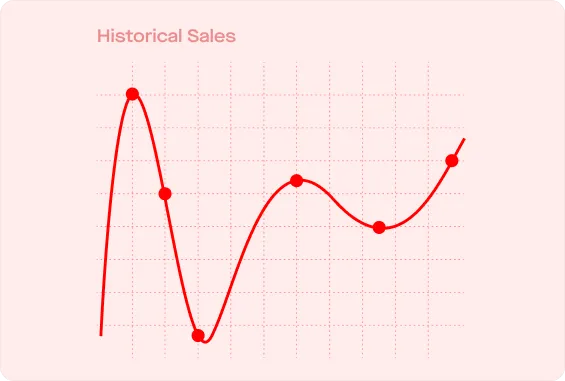Trade & Deductions Roles in CPG: Who Does What, and When Should You Hire?



Trade & Deductions Roles in CPG: Who Does What, and When Should You Hire?
Managing trade spend and deductions is one of the most significant operational challenges for growing CPG brands. Promotions can drive product velocity and retail distribution, but they also add complexity: contracts to negotiate, promotions to track, deductions to validate, and ROI to measure.
Many brands recognize the need for help, but the question is always: which role, exactly, should be hired? Some look for a “Trade Promotion Manager.” Others hear “Deduction Specialist” or “Forecasting Analyst.” Titles commonly overlap, responsibilities shift, and in practice, it’s not always clear who does what. The result: emerging brands can either delay hiring too long, or bring someone in with the wrong expectations.
This article examines the four core roles that most frequently cause confusion in trade and deduction management.
Start With Your Needs
Before hiring, step back and ask: what problem or bottleneck are we actually trying to solve? For certain brands, deductions are piling up and slowing cash flow. Others find that the team is spending on promotions but is uncertain about the ROI. Sometimes the primary issue is mistaken forecasts, leading to stockouts or write-offs. And, often, the core challenge is operational: the volume of retailer deadlines or promo submissions outpaces what the team can handle.
Clarity on pain points leads to clarity on roles. If the bottleneck is well-understood, it’s much easier to make a focused, strategic hire instead of expecting one person to cover all things trade.
The Four Core Roles
Trade Promotion Manager
The Trade Promotion Manager (sometimes called Trade Marketing Manager) operates as the strategist. Their focus is designing promotions aligned with brand growth objectives, managing trade budgets, and tracking whether programs deliver ROI. This person works cross-functionally – across sales, marketing, and finance – to set up promotions, monitor execution, and refine based on outcomes.
This role typically becomes critical when trade spend reaches a meaningful share of sales and promotions outpace what the sales team can manage informally. A frequent pitfall is expecting the Trade Promotion Manager to also handle deductions and disputes. While linked, deductions require a different skill set and, ideally, a dedicated resource.
Deduction Specialist
If the Trade Promotion Manager sets strategy, the Deduction Specialist ensures control. This role tracks retailer deductions, validates claims against agreements, and disputes invalid deductions. Done well, deduction management protects margins and ensures cash doesn’t leak from the business unnecessarily.
This hire becomes essential once a brand is dealing with several national retailers, where deduction volume can ramp quickly. Although it’s tempting to ask finance or receivables to “pick this up,” in practice deduction management is time-consuming and requires detailed knowledge of retailer agreements and deduction policies. Without focus, deductions can become a hidden tax on revenue.
Forecasting / Trade Planning Analyst
Forecast accuracy is what connects trade and operations. The Forecasting or Trade Planning Analyst blends base sales, promotional lifts, seasonality, and distribution changes into a demand plan. This person works closely with both finance and supply chain to ensure inventory supports planned promotions and that cash flow is forecasted accurately. In some companies, forecasting may instead sit within the supply chain group – a structure that works as long as collaboration with commercial teams is strong.
Brands often underestimate the need for this role until pain emerges: missed sales from stockouts, excess inventory, or failed promotions due to unavailability. While forecasting may start as a finance function, growing complexity usually calls for a dedicated person who can bridge numbers and market nuance.
Sales Operations
Even the best strategy fails without strong execution. A Sales Operation Manager makes sure that promotions are submitted into retailer portals, deadlines are met, and agreements are documented. They coordinate with brokers, distributors, and sales to make sure what’s planned actually gets done.
This role often flies under the radar but proves indispensable as account and promo volume expands. A missed submission window can mean an entire promotion is lost, and months of work wasted. Hiring someone to own execution can free up sales and trade managers to focus on commercial strategy, not clerical process.
When to Hire Which Role
Early on, most brands have one or more hybrid roles (finance or sales ops leads may cover promotions, deductions, and forecasting). This can work while the business is small, but breaks down quickly once retail distribution expands and complexity grows.
Commonly, the first specialized hire is a Deduction Management Specialist, since issues with deductions and cash can surface quickly with new retail partners. Next, bringing on a Trade Promotion Manager adds more structure to how trade dollars are spent. A Forecasting Analyst ensures plans are grounded in realistic demand and supply, while Trade Operations becomes critical as promo volume and complexity increases.
There isn’t a universal sequence; the order depends on the nature of your pain points, growth stage, and team capabilities. In larger or more mature organizations, roles may be combined, or fall under broader “Revenue Growth Management” or “Customer Development” teams.
By the time a brand reaches national scale with dozens of SKUs and significant retail presence, all four functions usually exist in some form, even if titles and reporting lines vary.
Making the Roles Work Together
Each of these roles is valuable, but the biggest impact comes from how they connect. The Trade Promotion Manager designs the program, the Sales Ops Manager ensures flawless execution, the Analyst models impact, and the Deduction Specialist verifies the numbers line up.
Without coordination, duplication or gaps can emerge: promotions without ROI measurement, deductions approved without validation, or forecasts that ignore planned trade activity. Strong systems and clear communication help the team function as a unit, ensuring that trade spending is both well-executed and well-accounted for.
That’s why many brands layer in dedicated trade management platforms (such as Confido) to unify promotions, deductions, and forecasts. Centralizing data gives each role a “single source of truth,” so teams can focus more on driving growth and less on chasing paperwork.
Key Takeaways
There’s no single “right” first hire in trade and deduction management – it depends on company stage, pain points, and existing systems. While there’s no fixed sequence, bringing in help to bring structure to trade promotions and protect margins from deduction leakage is the most common pathway. As distribution grows, forecasting and operations roles gain importance.
Titles vary by company, but responsibilities matter most. By mapping roles to current needs, emerging brands can avoid mis-hires, protect margins, and turn trade spend from a headache into a strategic advantage.
And when manual processes begin to slow the team down, it may be time to invest in technology. A platform such as Confido can help CPG teams connect trade, deductions, and forecasting in one system, so commercial teams spend more time growing the business, and less time wrangling spreadsheets.


Explore More Resources







.png)

.webp)
.svg)





